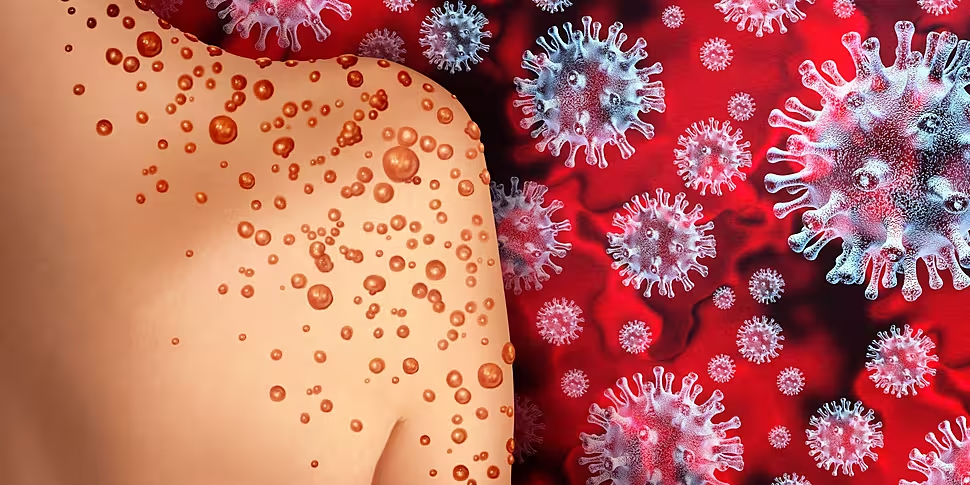An outbreak of monkeypox, or mpox, is no longer considered a global health emergency by the World Health Organisation.
The WHO said on Thursday that progress had been made in the response to the multi-country outbreak, and there was a "further decline" in the number of reported cases.
It also noted a "significant decline" in the number of reported cases compared to the previous reporting period, and no changes in the severity and clinical manifestation of the disease.
It said while there were "remaining uncertainties" about the disease around modes of transmission in some countries, these are "long-term challenges that would be better addressed through sustained efforts in a transition towards a long-term strategy to manage the public health risks posed by mpox, rather than the emergency measures inherent to a public health emergency of international concern (PHEIC)."
There have been 228 confirmed cases of mpox in Ireland to date, as of February 11th 2023.
The Health Protection Surveillance Centre (HPSC) said the first case was notified in May 2022, while infections peaked last August with 18 notified cases.
It comes just a week after the WHO downgraded COVID-19 in a similar way.
'Long-term elimination'
Health Minister Stephen Donnelly welcomed the WHO declaration on monkeypox.
"The WHO's announcement is a welcome development and highlights the success in tackling this disease," he said.
"Awareness campaigns and the close engagement of the affected community with public health have played a vital role in helping to bring the disease under control.
"We continue to work towards the long-term elimination of the disease, and I would urge all those eligible for vaccination to consider making an appointment. Appointments continue to be available through the HSE website," he added.
Chief Medical Officer Professor Breda Smyth added: "This announcement follows a steep decline in case numbers and is a very welcome development.
"However, it is important that those at higher risk continue to follow public health advice and safe sexual health practices.
"Public health measures including vaccination will continue to play an important role as we work to keep this illness at bay and I would encourage those who are eligible to come forward for vaccination".









